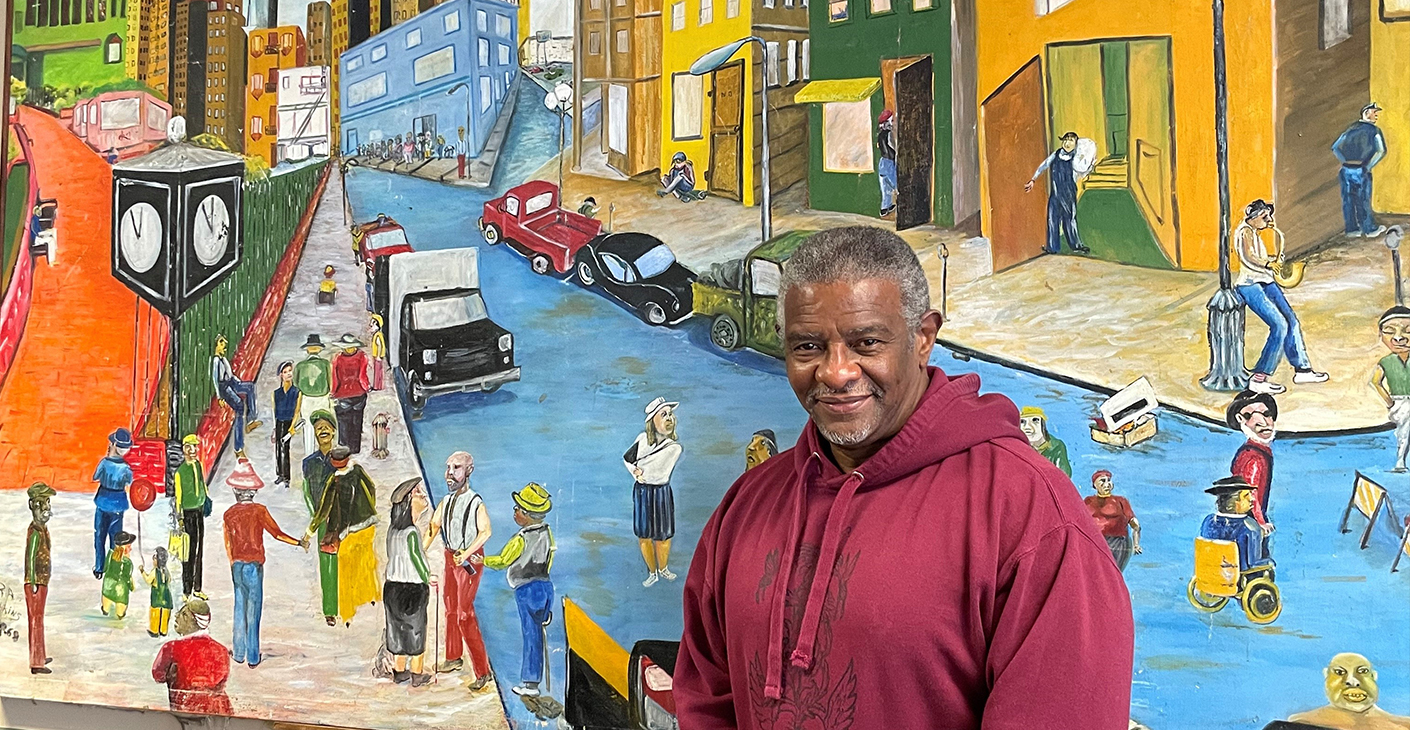As a graduate of a military prep school in the Midwest, Joe Wilson’s dream was to attend West Point in New York. But when he was accepted into Stanford, he headed west and started his life in California. But when his mother fell ill with a stroke, Mr. Wilson had to leave school to become her full-time caretaker. After an attempt to return to school and a couple of instances of bad luck trying to stay financially afloat holding odd jobs in Southern California and the Bay Area, Mr. Wilson found himself unhoused in San Francisco.
Looking for a place to reestablish himself, Mr. Wilson found Hospitality House, and immediately felt a sense of community and acceptance that he didn’t find anywhere else. “When people find themselves without stable housing, it can be a real struggle to hold onto the inner sense of your worth, your own humanity, your own connection to community and life in general,” he says. “Having others see my worth when I couldn’t – that had immeasurable effects on me.”
Hospitality House supports people without housing in San Francisco’s Tenderloin, SOMA and Mid-Market neighborhoods. Founded in 1967, the organization has grown from a drop-in space to an anchor institution that operates four locations and serves 25,000 clients a year.
Having first come to the organization in need of shelter, Mr. Wilson’s time at Hospitality House soon led to a volunteer opportunity, and eventually a full-time job. In 2017, he was named Executive Director. Since assuming the role, he has aspired to provide the same sense of community and acceptance that changed his life, for Bay Area communities struggling with poverty and homelessness. “We try to build a community that is rooted in redemption, motivated by second chances, based on rebuilding lives, celebrating creativity, and strengthening community,” he says.
But as a Black leader, Mr. Wilson has faced challenges that stem from the same structural inequities that continue to perpetuate poverty and homelessness for communities of color, in particular Black communities. Philanthropy has long failed to provide sufficient funding to Black-led and Black-serving nonprofits. And there is ample evidence to demonstrate this stark lack of funding: a 2020 study by the National Committee for Responsive Philanthropy found that only 1 percent of grants nationwide were designated specifically for Black communities.
For over 20 years, San Francisco Foundation has provided continual support for Hospitality House. Last summer, Hospitality House received a grant through an SFF partnership with Facebook (now known as Meta) and its Black Community Nonprofit Fund. The grant enabled Hospitality House to invest in growing and training its 15-person leadership team – 11 of whom are people of color and 10 of whom are women. Most recently, SFF further deepened our commitment to racial equity by launching the Bese Saka Initiative, a $3.4 million program tailored to help Black-led nonprofits, and Black nonprofit leaders. In this way, Bese Saka grantees, including Hospitality House and Mr. Wilson, are best positioned to build sustainability, increase capacity, and promote healing.
The need to address racial inequities has never been clearer. Mr. Wilson calls on funders, corporations, and donors to support Black-led nonprofit organizations, and leadership. “If Black people are overrepresented in a problem,” says Wilson, “They need to be overrepresented in the solution. Equity doesn’t replicate injustice, equity corrects it.” To achieve equity and help Black-led nonprofits thrive, we need to believe in the power of second chances.


